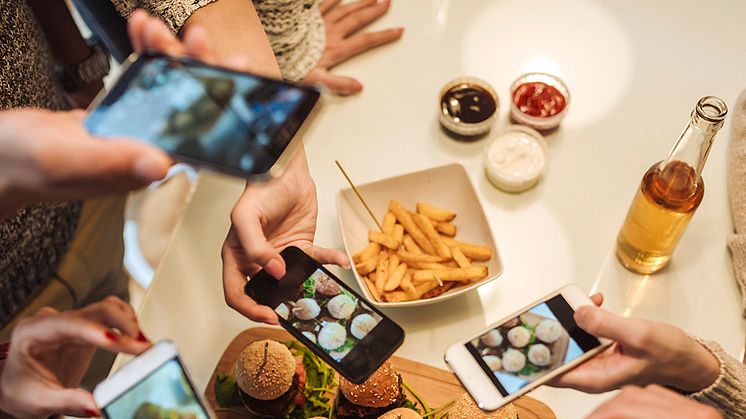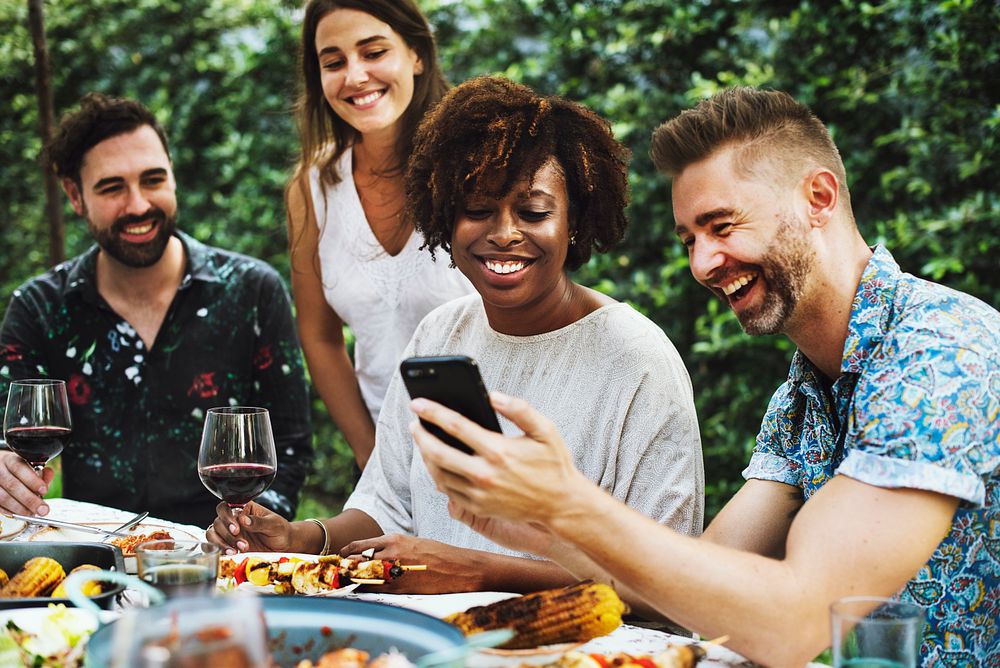
Blog post -
The Importance Of Social Media For Restaurants
With what can only be described as a food photo frenzy taking over our social feeds, and birthing the newly coined term #foodporn, it’s no secret that social media is incredibly influential in the world of restaurant marketing. In fact, with the arrival of channels like Instagram, which glorifies the beauty, presentation, and quirkiness of venues as well as the food itself, social media can make or break restaurants today.
What does social media look like for restaurants? – A quick look
Social media influences more than 50% of your potential customers.
- In a recent survey, more than 45% of diners agreed that they tried a restaurant for the first time after seeing posts about the brand on social media. 21% claimed a restaurant’s social posts put them off visiting an eating establishment, whilst 22% sat on the other end of the spectrum, and believed social media posts encouraged them to return.
- Restaurant brands who engage with their customers on social media typically saw those users spending up to 40% more when they visited in person. The potential revenue alone should be a major push factor to adopt social media in your future marketing strategies. Properly managed, social media has the power to influence everything from location and promotions to customers, décor, and the food itself.
- Nearly 3 in 4 customers (72 percent) have used Facebook to make restaurant decisions. Simply put if you’re not on Facebook you have no influence on the decision-making, nor can you control your own brand narrative as you’re unable to respond to customer reviews nor promote your business to your ideal target audience.
- 36% of users follow a brand on social media. These are people actively searching for information about your brand. Half of the job is already done for you. Ensure you’re meeting their needs by sharing relevant content – latest menu items, opening hours and inspirational images.

What does this mean for you?
No matter how much you try to deny it, social media is here to stay – and has become the most effective way for restaurants to communicate and influence their customers. 71% of users who have a good experience with a brand on social media will recommend that brand to a friend. That’s more than enough reason to create your own social accounts and start engaging with your customers.
- Select the right social media platforms for your business.
It’s not feasible for restaurant managers and owners to have an online presence on every available social media platform, especially as an independent with limited resources. Instead, consider setting up profiles on social channels frequented by your customers to ensure you’re reaching the right audience and that your outreach efforts are not wasted.
- Ensure you have completed your bio and profiles in full.
Customers will naturally use social media to reach out to you, and there’s nothing more infuriating for the customer than to be unable to get in contact with you through their chosen channel. Before they’ve even stepped foot in your establishment, you’re starting on negative footing. Ensure you include basic bio details such as opening hours, contact numbers, booking options, menus, and your website. Check your messages frequently.
- Post consistently
You don’t need to post every single day to make the most of social media but, you do need to ensure that you’re posting consistently enough for your target audience. For example, if you have enough content to post twice a week, then continue to do so going forward. Avoid leaving your social channels stagnant for long periods of time as your audience will lose interest and opt to follow your competitors instead. Find a pattern that works for you and stick to it.
- Post relevant content
Recent research showed that most users find an overload of promotional posts from brands the most annoying aspect of social media. Consider how to get your restaurant offering across without overloading your audience; Incorporate actions shots or product placement in a visually attractive way, post images of your food and venue to help customers imagine themselves at your business.
Summary
In summary, social media platforms are the new mainstream method of communication that hospitality businesses need to leverage in order to effectively communicate with their customers and futureproof their marketing strategies. For many of your customers, social media is incorporated into everyday life and offers familiarity as it’s easy to navigate and it’s immediate.
This is particularly true when you consider that Millennials, as one of the largest demographics, are early social media adopters, with 5 out of 6 being connected with companies on social media platforms. 99% of the younger digital generation are more likely to use social media and other online services (reviews etc) to choose a restaurant, over their older counterparts. A trend only likely to continue with younger generations.


